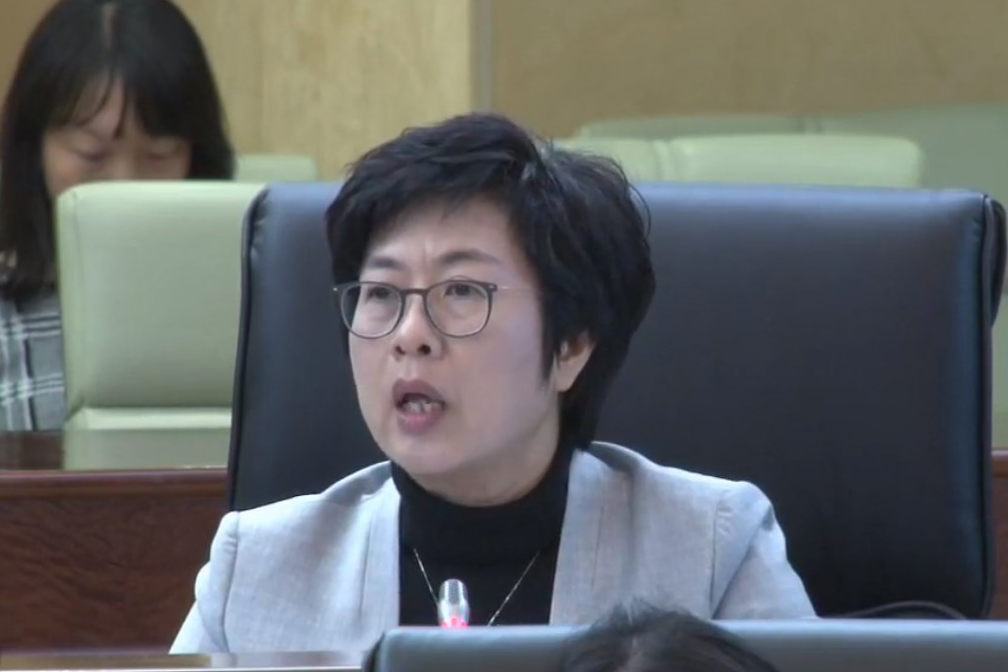People in Macau who insult the Chinese national anthem can now be jailed for up to three years, after the SAR’s legislature passed an amendment to its law on Thursday.
The Special Administrative Region’s Law no. 5/1999 on the use and protection of national flag, national emblem and national anthem was amended and passed by a majority of the legislature, despite three opposition votes from pro-democracy lawmakers Ng Kuok Cheong, Au Kam San and Sulu Sou.
The highest punishment for intentional disrespect of the national symbols under the law is three years behind bars or up to 10,000 patacas (HK$9,681). According to the law, those who did not follow the score or modify the lyrics when playing the anthem will be considered as disrespecting it.

Secretary for Administration and Justice Sonia Chan, Macau’s number two official, said the law was drafted to defend the dignity of national symbols.
“As a national, it is a basic thing to stand solemnly and show respect when the national anthem is played,” she said.
Although the law asks attendees at occasions where March of the Volunteers is played to stand solemnly, there is no punishment if the rule is violated.
Potential violations
Lawmaker Au said the law listed some cases when people could violate the law, but it was not clear about all the potential circumstances where it could be violated: “Since the law involves criminal elements, it is important to list what are the circumstances that constitute a violation,” Au said.
The law states that the anthem would be included in primary and secondary education, with students taught about its history and the etiquette for performing and singing it. There is no punishment mentioned, if schools fail to follow the rules.
The law also stated that the Macau government may “request” news outlets to assist the government in launching its promotion campaigns for the national anthem.

Although the requirement for media outlets does not include any punishment, Macau’s Journalist Association said the term “request” could be used to demand news outlets comply with government orders.
“The media is not a propaganda machine of the regime, and it has no obligation to cooperate with the so-called ‘requirements’ of the government,” it said in a statement.
“It will cause unnecessary controversy when it is implemented, and it will spark further concerns that the government is using the legislation to further interfere with press freedom and editorial freedom.”
But Sonia Chan said during a debate on Thursday that it was not a compulsory requirement, and it will not affect Macau’s press freedom.
The Standing Committee of China’s National People’s Congress passed a motion in November 2017 to insert the new national anthem law into Annex III of the Basic Law of Hong Kong and Macau. Both governments then drafted the bill to legislate the law locally. Hong Kong’s national anthem bill was tabled at the legislature this week.

During the debate on Thursday, pro-democracy lawmaker Sulu Sou asked if the government would educate the public on the history of the national anthem, including the fact that the song’s lyricist Tian Han died in prison during the Cultural Revolution.
Chan said in response that Macau’s Education and Youth Affairs Bureau provides non-compulsory teaching materials, and schools are welcome to use their own.
She said she believed the Education and Youth Affairs Bureau had the professional ability to decide what the teaching materials should include.
